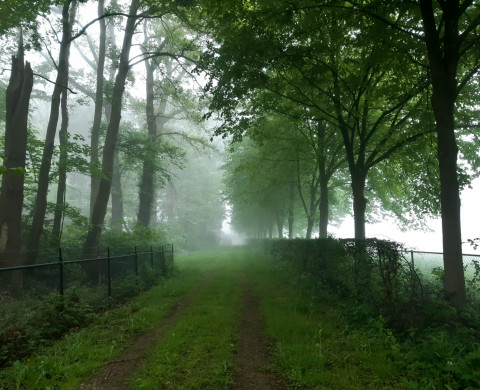Hole-breeding passerines monitoring: Oosterhout

Details
- Infrastructure type
- Field sites / Long-term monitoring
- Landscape type
- Research partner
Study site
Oosterhout is the last of four areas in NIOO-AnE's long-term monitoring research on great tits and other bird species. Research there started in 1956, one year after the other three areas. It consists of deciduous forest of mainly oak trees on a country estate of about 8 ha, and has rich clay-sandy-loam soil. Oosterhout has around 150 nestboxes. Until about two decades ago, the forest area was surrounded by an extensive meadow landscape, but it is now on the outskirts of the urban conglomerate of Nijmegen.
Species groups studied
Bird species studied since 1956 are hole-breeders: mainly great tit, blue tit and nuthatch. Also, the budburst of particular oak trees has been recorded and studied each year for the past three decades. In recent decades, frass of winter moths has also been collected each spring period, to determine the biomass peak of winter moth caterpillars. In late autumn, winter moths are collected in traps on specific oak trees, and brought to the research lab facilities at NIOO for further genetic research under a range of climatic conditions.
Running period (guaranteed funding)
1956 – undetermined
Equipment / facilities
Nestboxes (+/-150)
Data management
All detailed data from breeding season and winter period roost checks is entered in the ‘Avian database' (BAS) at NIOO-AnE. It consists of broods, individuals, captures, all kinds of biometry data, blood samples and other samples, bill size photographs, etc. It also contains data on other species including blue tit and nuthatch.
Budburst data is entered in a separate database, as is the case with winter moth data.
Available datasets
- Hole-breeders (1956 – undetermined)
- Budburst (1993 – undetermined)
- Winter moth (1993 – undetermined)
Conditions for access
The area is private property and most of the forest is publicly accessible. For more details, please contact Judith Risse.
Details
- Infrastructure type
- Field sites / Long-term monitoring
- Landscape type
- Research partner
Location
Netherlands

